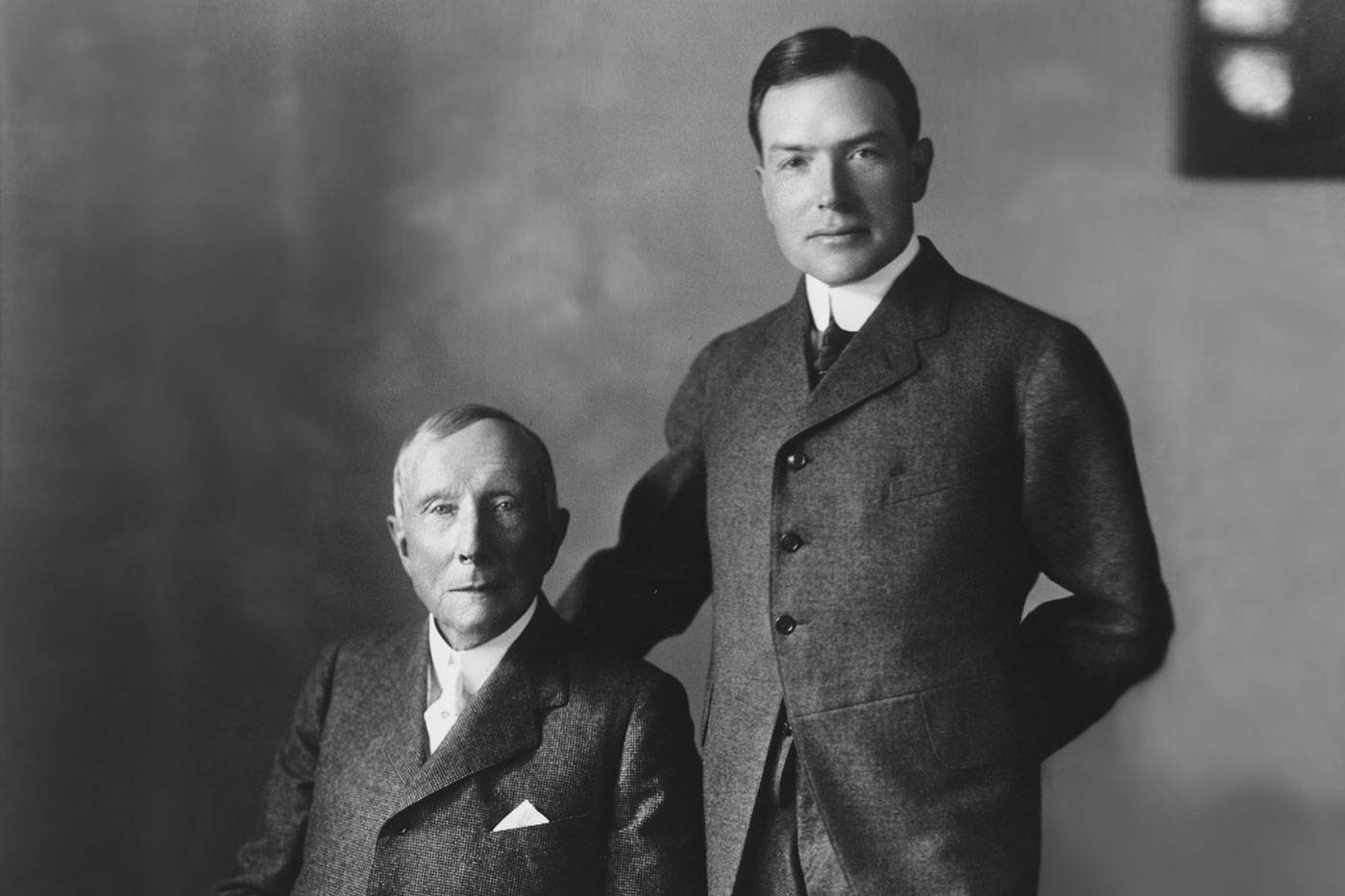The Rockefeller family, one of the most influential and wealthy families in American history, has shaped the economic, political, and cultural landscape of the United States for over a century. Their rise to prominence began with John D. Rockefeller, who founded Standard Oil and became the world's first billionaire. The family's legacy extends far beyond their immense wealth, as they have also been instrumental in shaping modern philanthropy and influencing global affairs.
The Rockefeller family's story is not just about money; it is about innovation, entrepreneurship, and the power of giving back. From their early days in the oil industry to their current involvement in global initiatives, the Rockefellers have left an indelible mark on the world. This article will explore their history, achievements, and contributions to society, as well as their enduring influence on modern life.
As we delve into the fascinating history of the Rockefeller family, we will uncover the secrets behind their success and examine how they have maintained their status as one of the most powerful families in the world. Join us as we explore the legacy of this iconic family and discover what makes them so unique.
Read also:Cameron Arnett The Inspiring Journey Of A Rising Star
Table of Contents
- Biography of the Rockefeller Family
- The Rise of Standard Oil
- Philanthropy and Giving Back
- Political Influence and Global Impact
- The Rockefeller Family Today
- Wealth Management and Investment Strategies
- Cultural Impact and Contributions
- Family Values and Traditions
- Criticisms and Controversies
- Conclusion: The Enduring Legacy of the Rockefellers
Biography of the Rockefeller Family
Early Beginnings
The Rockefeller family traces its roots to John D. Rockefeller Sr., who was born in 1839 in New York. He grew up in a modest household and developed a strong work ethic from a young age. After working various jobs, he entered the oil industry in the mid-19th century, eventually founding Standard Oil in 1870. His business acumen and innovative approach to refining and distributing oil helped him build one of the largest and most profitable companies in history.
Below is a summary of key information about the Rockefeller family:
| Full Name | Rockefeller Family |
|---|---|
| Founder | John D. Rockefeller Sr. |
| Year Established | 1870 |
| Industry | Oil, Finance, Philanthropy |
| Net Worth | Estimated $340 billion (adjusted for inflation) |
The Rise of Standard Oil
Innovative Business Strategies
John D. Rockefeller's success with Standard Oil was largely due to his innovative business strategies. He focused on vertical integration, controlling every aspect of the oil production process, from extraction to refining and distribution. This approach allowed him to reduce costs and increase efficiency, giving him a significant advantage over competitors. By the late 1800s, Standard Oil controlled over 90% of the oil refining capacity in the United States.
Key factors contributing to Standard Oil's success include:
- Vertical integration to control costs
- Innovative marketing and distribution strategies
- Strategic partnerships with railroads
- Focus on quality and efficiency
Philanthropy and Giving Back
Establishing Foundations
Despite their immense wealth, the Rockefellers have always been committed to giving back to society. John D. Rockefeller Jr. played a pivotal role in shaping modern philanthropy by establishing several foundations, including the Rockefeller Foundation and the General Education Board. These organizations have funded countless initiatives in education, health, and the arts, leaving a lasting impact on communities around the world.
Some notable philanthropic contributions of the Rockefeller family include:
Read also:Understanding Point Site Pointmov A Comprehensive Guide
- Establishment of the University of Chicago
- Funding for medical research, including the discovery of penicillin
- Support for the arts, including the construction of the Museum of Modern Art (MoMA)
Political Influence and Global Impact
Engagement in Global Affairs
The Rockefeller family has been involved in politics and global affairs for generations. Members of the family have held various public offices, including Nelson Rockefeller, who served as the 41st Vice President of the United States under President Gerald Ford. Their influence extends beyond politics, as they have played key roles in shaping international policies and initiatives.
According to a report by the Council on Foreign Relations, the Rockefellers have been instrumental in promoting global cooperation and addressing pressing issues such as climate change, poverty, and public health.
The Rockefeller Family Today
Modern-Day Achievements
Today, the Rockefeller family continues to be a major force in the world of finance, philanthropy, and global affairs. With an estimated net worth of over $340 billion (adjusted for inflation), they remain one of the wealthiest families in the world. Members of the family are actively involved in various industries, including real estate, finance, and technology.
Notable modern-day Rockefellers include:
- David Rockefeller, former Chairman of Chase Manhattan Bank
- Peggy Dulany, founder of Synergos, a nonprofit organization focused on social change
- Perry Rockefeller, a prominent figure in the art world
Wealth Management and Investment Strategies
Long-Term Vision
The Rockefeller family's approach to wealth management has always been focused on long-term growth and sustainability. They have invested in a diverse range of industries, including real estate, finance, and technology, ensuring that their wealth continues to grow over time. Their commitment to responsible investing has set a standard for other wealthy families and institutions.
Key principles of Rockefeller wealth management include:
- Diversification across industries
- Focus on sustainable investments
- Long-term vision and strategic planning
Cultural Impact and Contributions
Support for the Arts
The Rockefeller family has had a profound impact on the arts and culture, both in the United States and around the world. They have been major supporters of institutions such as the Museum of Modern Art (MoMA) and the Metropolitan Museum of Art, as well as numerous theaters, orchestras, and other cultural organizations. Their contributions have helped preserve and promote the arts for future generations.
Some notable cultural contributions of the Rockefellers include:
- Construction of the Rockefeller Center in New York City
- Support for the restoration of historic landmarks
- Funding for cultural exchange programs
Family Values and Traditions
Passing Down Values
The Rockefeller family has always placed a strong emphasis on values such as integrity, responsibility, and giving back to society. These values have been passed down through generations, ensuring that the family remains committed to its mission of making a positive impact on the world. Family members are encouraged to pursue their passions while staying true to the family's core principles.
Key values of the Rockefeller family include:
- Integrity and honesty
- Commitment to philanthropy
- Respect for tradition and innovation
Criticisms and Controversies
Addressing Challenges
Despite their many achievements, the Rockefeller family has not been without controversy. Critics have accused them of monopolistic practices in the oil industry, as well as involvement in political scandals. However, the family has consistently addressed these challenges by promoting transparency and accountability in their business and philanthropic endeavors.
Some notable controversies surrounding the Rockefellers include:
- Antitrust lawsuits against Standard Oil
- Political scandals involving family members
- Criticisms of their investment strategies
Conclusion: The Enduring Legacy of the Rockefellers
The Rockefeller family's legacy is one of wealth, power, and philanthropy. From their early days in the oil industry to their current involvement in global initiatives, the Rockefellers have left an indelible mark on the world. Their commitment to giving back to society and promoting positive change has set a standard for other wealthy families and institutions.
As we have seen throughout this article, the Rockefeller family's success is due in large part to their innovative business strategies, commitment to philanthropy, and focus on long-term growth. Their story serves as an inspiration to all those who seek to make a difference in the world.
We invite you to share your thoughts on the Rockefeller family in the comments section below. Have they inspired you to pursue your own passions and make a positive impact on the world? Let us know! And don't forget to explore our other articles on influential families and their contributions to society.


